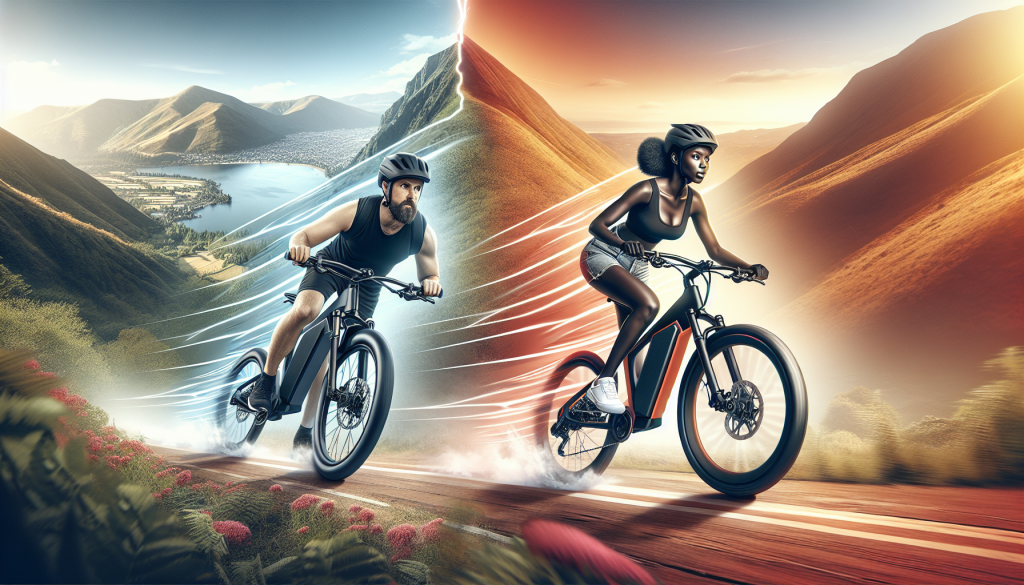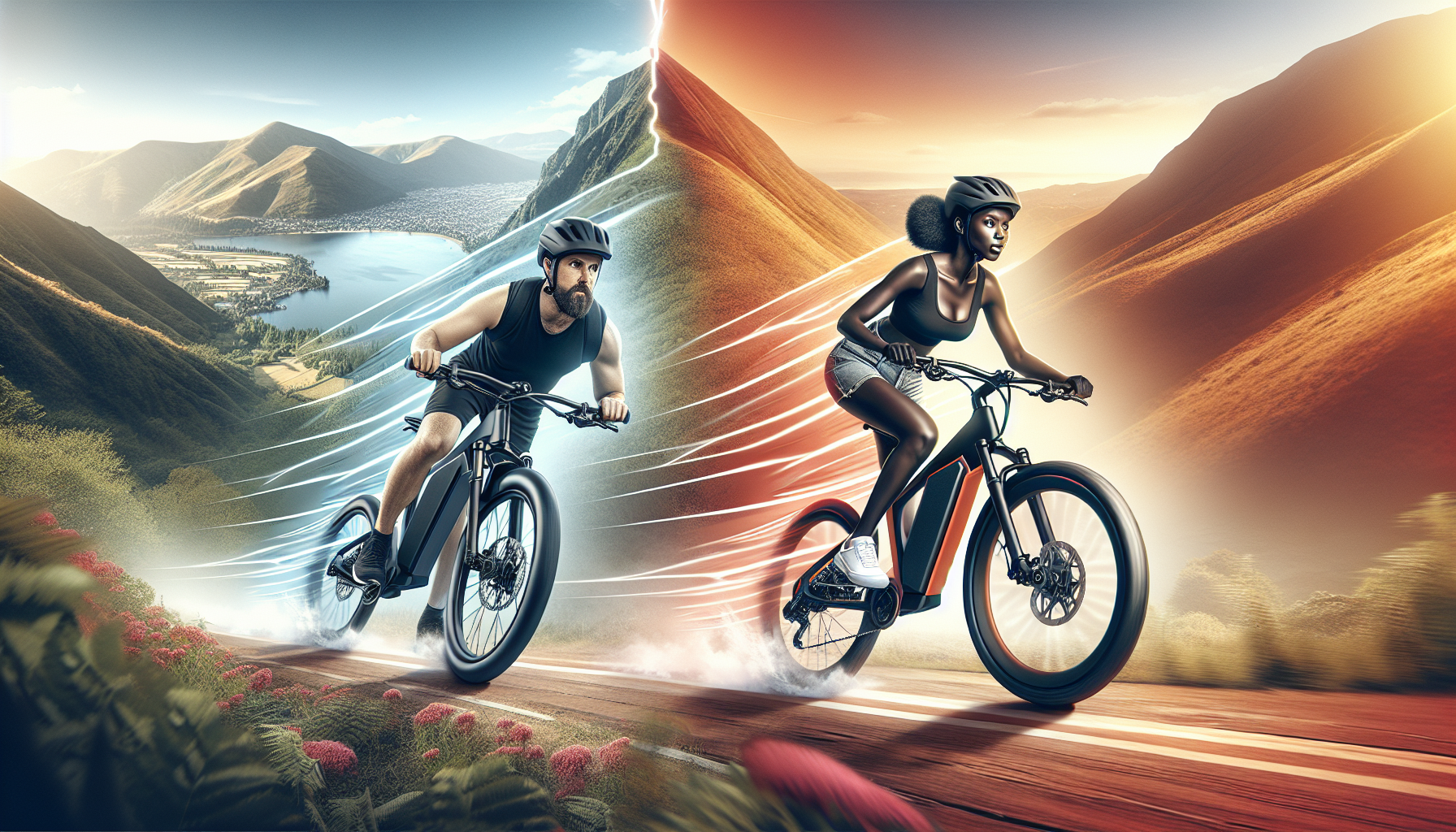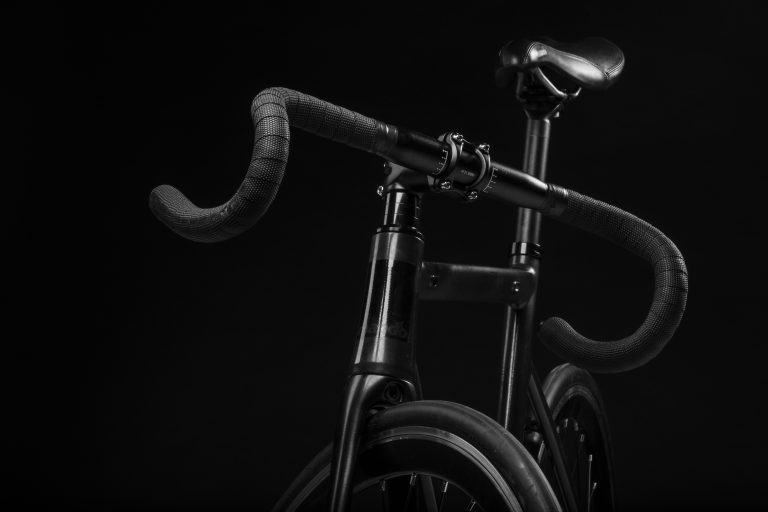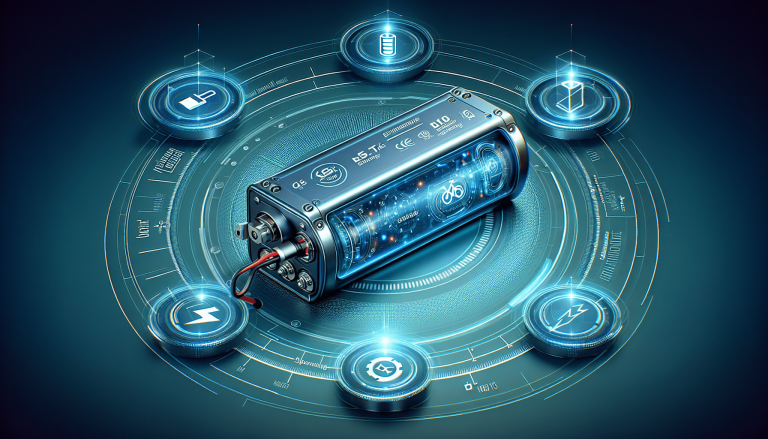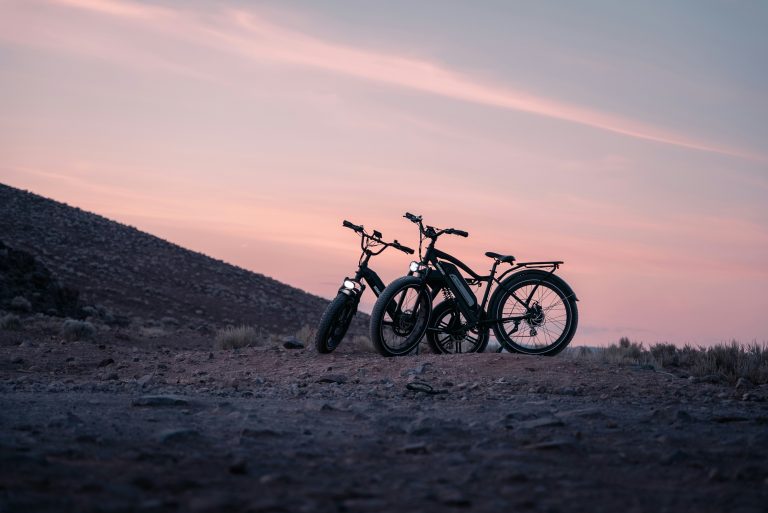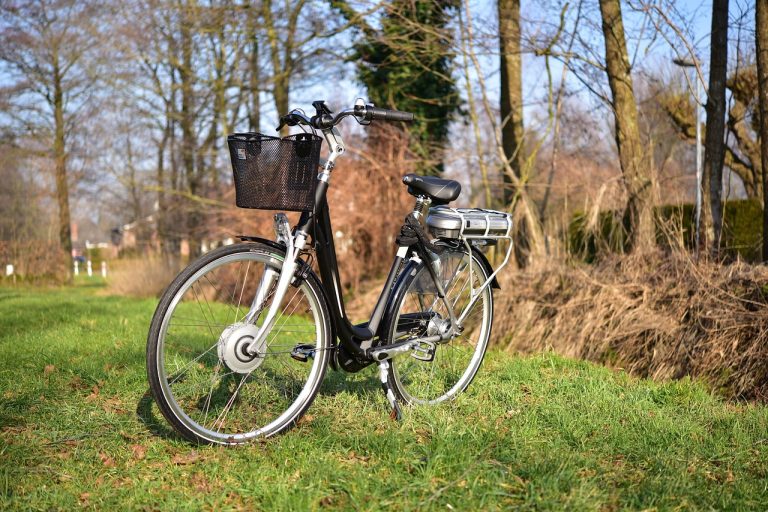Is There A Big Difference Between 500w And 750W Ebike?
Are you curious about the difference between a 500W and a 750W ebike? If so, you’re not alone! Many enthusiasts wonder if the slight increase in wattage translates to a noticeable difference in performance. In this article, we’ll explore the distinctions between these two popular electric bike options, allowing you to make an informed decision when it comes to selecting the perfect ebike for your needs. So, let’s dive in and discover the answer to this burning question!

Motor Power
What is motor power?
Motor power refers to the amount of power or wattage that the electric motor of an e-bike can generate. It is the measure of the motor’s ability to propel the bike and provide assistance to the rider. The higher the motor power, the more energy it can transmit to the wheels, resulting in improved performance.
Difference between 500W and 750W motors
The main difference between a 500W and a 750W motor lies in their power output. While both motors are capable of providing assistance to the rider, the 750W motor has a higher power output compared to the 500W motor. This means that the 750W motor can generate more torque and accelerate faster, allowing the e-bike to reach higher speeds and climb steeper inclines with relative ease.
Effect on bike’s performance
The motor power directly influences the overall performance of an e-bike. With a 500W motor, the bike will still provide decent assistance and enable comfortable rides on various terrains. However, if you desire more power and performance, a 750W motor would be a better choice. It provides a significant boost in acceleration, top speed, and climbing ability, making it suitable for riders who enjoy a more thrilling and dynamic ride experience.
Speed
Top speed with a 500W motor
With a 500W motor, the top speed of an e-bike can typically range between 20 to 25 miles per hour (32 to 40 kilometers per hour). This speed is generally sufficient for regular commuting and recreational rides on city streets and paved roads. However, it may not meet the expectations of riders who seek higher-speed capabilities.
Top speed with a 750W motor
When equipped with a 750W motor, an e-bike’s top speed can increase to around 28 to 30 miles per hour (45 to 48 kilometers per hour). This enhanced speed allows riders to cover longer distances quickly, even when facing headwinds or slight inclines.
Potential legal implications
It is essential to consider the legal implications of higher speeds when choosing between a 500W and 750W motor. Laws and regulations regarding e-bikes vary across different regions, and in some areas, there may be restrictions on maximum motor power and speed. Before opting for a more powerful motor, it is crucial to familiarize yourself with local regulations to ensure compliance and avoid potential penalties.
Acceleration
Acceleration with a 500W motor
With a 500W motor, the acceleration of an e-bike is generally decent, allowing riders to pick up speed smoothly and comfortably. It may take a few seconds to reach the desired pace, but once in motion, the bike can maintain a steady speed, making it suitable for most everyday riding scenarios.
Acceleration with a 750W motor
A 750W motor boasts impressive acceleration capabilities, allowing riders to achieve higher speeds more quickly. With the additional power, the bike can effortlessly navigate through traffic, overtake slower vehicles, and handle sudden changes in speed with ease.
Importance of acceleration
Acceleration plays a vital role in e-bike performance, especially in urban environments and when maneuvering through congested areas. It enhances the overall riding experience by providing a responsive and dynamic feel. Riders who value quick and efficient speed transitions will find a 750W motor more suitable for their needs.
Climbing Ability
Climbing inclines with a 500W motor
When it comes to climbing inclines, a 500W motor can handle moderate slopes and hills with relative ease. Riders can expect smooth and steady ascents, allowing them to comfortably conquer most urban gradients or moderately challenging off-road trails.
Climbing inclines with a 750W motor
Equipped with a 750W motor, an e-bike gains an enhanced climbing ability, making it better suited for tackling steeper inclines. Whether it’s navigating hilly terrains or conquering more challenging off-road trails, the additional power provided by the 750W motor allows riders to climb with greater confidence and agility.
Advantages and disadvantages
The advantage of a 750W motor’s improved climbing ability is clear – riders can take on more challenging terrains and conquer steeper inclines with greater ease. However, it’s worth noting that the additional power also means increased energy consumption, potentially reducing the overall range of the bike between charges. Additionally, climbing steep hills with excessive power can affect the bike’s overall stability, requiring riders to exercise caution and maintain control.

Battery Life
Battery consumption with a 500W motor
With a 500W motor, the battery consumption can vary depending on various factors such as the terrain, rider’s weight, speed, and level of assistance provided by the motor. Typically, a 500W motor consumes a moderate amount of energy, allowing riders to enjoy a reasonable range between charges.
Battery consumption with a 750W motor
With the increased power output of a 750W motor, the battery consumption is generally higher compared to a 500W motor. The additional energy required for accelerated speeds, climbing inclines, and improved performance can lead to a shorter range between charges.
Range and riding time
The range of an e-bike varies based on several factors, including the motor power, battery capacity, riding conditions, and personal riding habits. While a 750W motor may consume more energy, it’s important to note that advancements in battery technology have led to the development of higher-capacity batteries that can still provide reasonable riding distances between charges. Riders should consider their intended usage and the availability of charging options to ensure their desired range aligns with the capabilities of the motor and battery.
Weight and Size
Weight and size of a 500W motor
The weight and size of a 500W motor can vary depending on the specific model and design. Generally, e-bike motors are compact and designed to be integrated seamlessly into the frame. While the weight of the motor varies, it typically adds an additional 8 to 10 pounds (3.5 to 4.5 kilograms) to the overall weight of the bike.
Weight and size of a 750W motor
Being more powerful, a 750W motor typically weighs slightly more than a 500W motor. The additional power components and larger winding systems contribute to an increased weight of around 10 to 12 pounds (4.5 to 5.5 kilograms). It’s important to consider the weight distribution and the overall weight of the e-bike when selecting a motor, as it can affect maneuverability and ease of handling.
Portability and maneuverability
The weight and size of the motor can impact the overall portability and maneuverability of an e-bike. While both 500W and 750W motors may add some weight to the bike, advancements in frame design and material selection have resulted in e-bikes that are lightweight and easy to handle. Riders who prioritize portability and maneuverability may prefer the slightly lighter weight of a 500W motor, while those seeking more power might be willing to accept the additional weight of a 750W motor for the performance benefits it offers.

Cost
Price difference between 500W and 750W bikes
The price difference between e-bikes equipped with a 500W and a 750W motor can vary depending on the brand, model, and additional features offered. Generally, the cost of a 750W e-bike is higher than its 500W counterpart due to the increased power and performance capabilities it provides. The price difference can range from a few hundred to several thousand dollars, depending on the specific specifications and components of the e-bike.
Value for money
Determining the value for money when choosing between a 500W and 750W e-bike involves assessing personal preferences, riding requirements, and budget constraints. If enhanced speed, acceleration, and climbing ability are important to you, investing in a 750W e-bike might provide better value in terms of performance. However, if you primarily engage in urban commuting or leisurely rides on mostly flat terrain, the 500W e-bike might offer sufficient assistance at a more affordable price point.
Factors to consider
When considering the cost of an e-bike, it’s crucial to evaluate the quality of the components, durability, warranty coverage, customer support, and overall reputation of the manufacturer. Comparing the features, specifications, and performance of different models is also essential to ensure that the price differential aligns with the actual benefits and riding experience offered by the respective motor power options.
Legal Considerations
Electric bike regulations
Different regions have varying regulations and laws surrounding electric bikes, including motor power limitations and speed restrictions. It is essential to familiarize yourself with the specific regulations in your area to ensure that your chosen e-bike complies with legal requirements.
Restrictions on motor power
Some jurisdictions have restrictions on the maximum motor power allowable for electric bikes. These restrictions may limit the usage and availability of e-bikes equipped with higher-power motors. Riders should consult local authorities or reference relevant legislation to determine the maximum motor power permitted in their area.
Penalties for non-compliance
Non-compliance with electric bike regulations can result in penalties and legal consequences. These penalties may include fines, confiscation of the e-bike, or even loss of riding privileges. It is important to be aware of and abide by the applicable laws to ensure a safe and legal riding experience.
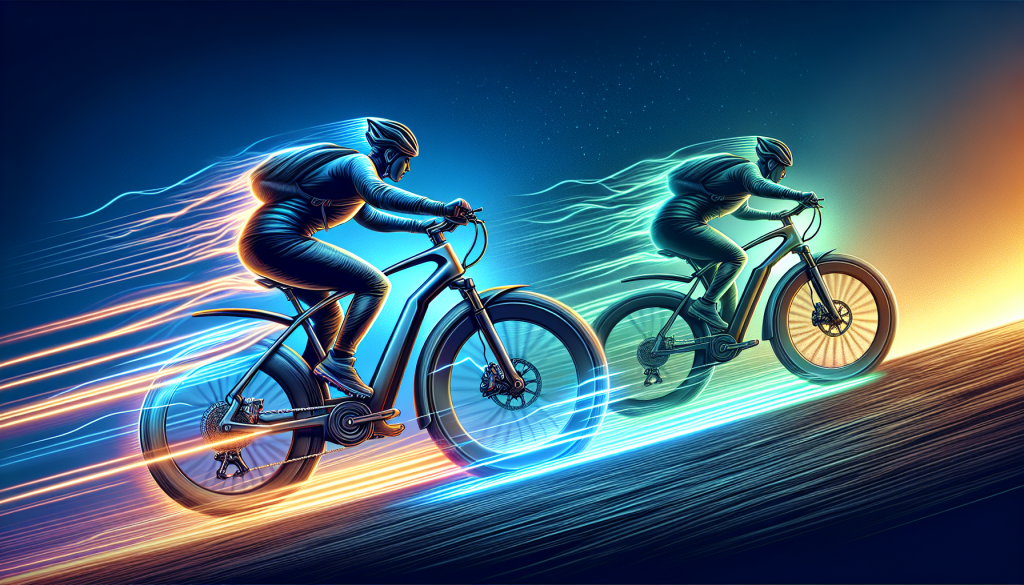
Use Cases
Urban commuting
For urban commuting, both 500W and 750W e-bikes can offer convenient and efficient transportation alternatives. A 500W e-bike would be suitable for most city streets, providing assistance to riders for a smooth and comfortable commute. However, if you prefer to navigate through heavy traffic or require faster acceleration to keep up with the flow of urban congestion, a 750W e-bike would be more beneficial.
Off-road adventures
When it comes to off-road adventures, a 750W e-bike offers superior capabilities in handling rough terrains, steep inclines, and challenging trails. The additional power and torque provided by the 750W motor allow riders to tackle demanding off-road conditions with confidence. While a 500W e-bike can still handle some moderate off-road trails, the 750W option provides a more exhilarating and thrilling experience.
Personal preference
Ultimately, the choice between a 500W and a 750W e-bike comes down to personal preferences and individual riding needs. Factors such as desired speed, acceleration, climbing ability, and budget should all be taken into account. It is recommended to test ride multiple e-bike models with varying motor power options to determine which one best aligns with your specific requirements and riding style.
Maintenance
Maintenance requirements for 500W bikes
The maintenance requirements for a 500W e-bike are similar to those of any other electric bicycle. Regular maintenance tasks include keeping the bike clean, inspecting and lubricating the chain, checking tire pressure, and ensuring proper brake functionality. It is also important to periodically inspect the motor and electrical components for any signs of wear or damage and address any issues promptly.
Maintenance requirements for 750W bikes
A 750W e-bike may require slightly more maintenance compared to a 500W bike due to the increased power and potential strains on the components. Similar maintenance tasks such as cleaning, lubrication, and tire pressure checks apply. Additionally, riders should pay attention to the motor’s cooling system to ensure proper airflow and prevent overheating. Regular servicing and inspection by a professional can help identify any potential issues and prolong the lifespan of the e-bike.
Cost and effort
The cost and effort required for maintenance generally vary depending on the complexity of the e-bike’s components and the scope of the maintenance tasks. While a 750W e-bike may require more frequent inspections and potential component replacements due to the increased power output, the overall cost and effort should not be significantly different from a 500W e-bike. Routine maintenance and occasional professional servicing will help ensure the longevity and optimal performance of the e-bike, regardless of the motor power chosen.
